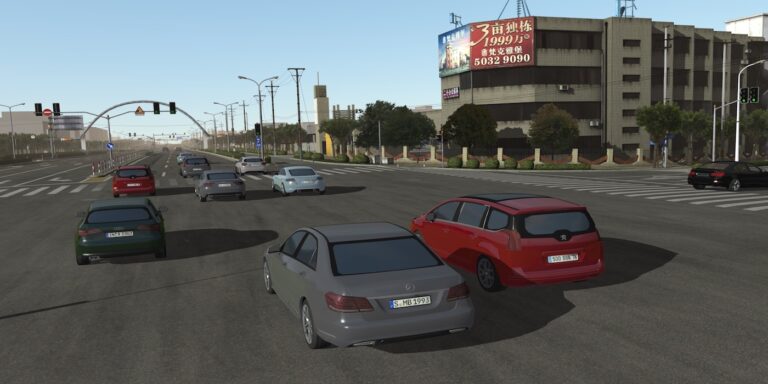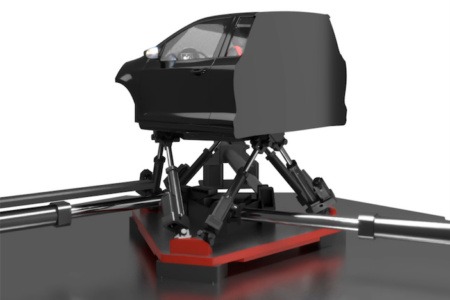Vehicle dynamics simulation specialist, rFpro is furthering its technology through the acquisition of key assets and expertise from Image Space Incorporated (ISI). ISI has been developing simulation realism technology for more than 25 years, specifically the ISIMotor including the gMotor graphics engine, and rFpro has been licensing ISI’s technology for more than 10 years, integrating it with its simulation systems.
Originally created for the gaming industry, ISIMotor is a gaming engine for racing simulations. rFpro has used the technology to provide engineering-grade vehicle simulation software used to develop and test vehicle dynamics, and more recently, autonomous vehicle systems.
Gjon Camaj, an owner of ISI and now a VP at rFpro Inc commented, “Over the last 10 years we’ve dedicated our team to producing realistic and verifiable, rather than cinematic, simulation. That focus really paid off with the emergence of the autonomous driving simulation market. Our overall simulation architecture and graphics engine delivers, out of the box, the tools and techniques that are required for deep learning-based perception systems driven by camera, LiDAR and radar feeds.”
“Vehicle manufacturers and their suppliers are increasing their investment in the development of ADAS and autonomous systems,” added rFpro’s technical director, Chris Hoyle. “That places the emphasis on the development and validation of Deep Learning systems for both perception, using cameras, radar and LiDAR to detect the environment, and prediction, to plan a path through the road ahead, allowing for traffic, pedestrians, road signals and hazards.”
rFpro’s solution for ADAS and autonomous testing starts with the generation of training data sets for deep neural network models. A simulated test scenario can be conducted unattended across clusters of PCs, where test parameters, such as the time of day, weather and lighting conditions, can be varied almost infinitely to fully validate the system. The same virtual environment can also be implemented in real-time, allowing human drivers to join the simulation. This provides a world where multiple autonomous ego vehicles, each with multiple sensor feeds, can interact with other human drivers in simulators and programmed traffic and pedestrians.
“The combination of technologies from rFpro and ISI is so much greater than the sum of the two parts as it allows us to substantially accelerate our R&D,” continued Hoyle. “rFpro has one core focus: driving simulation, and, by investing in our R&D capability, we hope to keep ahead of the curve on the demand for new capabilities from our customers in deep learning autonomous driving, ADAS and vehicle dynamics. The deal also secures our access to key technology, essential to producing realistic simulation for perception systems.”
rFpro also offers a library of 3D digital road models, built accurately from LiDAR surveys, spanning Europe, North America and Asia. Using real-world models overcomes the problems associated with pure synthetic data and accelerates the development of perception systems. The models allow the rapid creation of realistic simulations of complex corner cases and help to achieve good correlation with real-car testing.
According to rFpro, as the level of realism advances it will not only accelerate autonomous vehicle development but it will also improve the accuracy of more traditional vehicle dynamics simulation. The driver will be more immersed in the virtual environment, making their reactions more representative of real world driving, a key requirement for Driver-In-The-Loop simulation.





